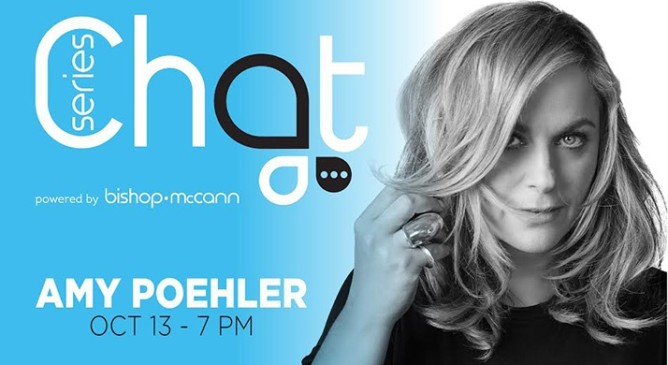On Tuesday I had the privilege of attending the first of the CHAT series. Chat is a series of live events designed to engage, entertain, educate, inspire and make change. The series organizers present “thought leaders, renowned speakers, celebrities and influencers to audiences around the world.”
The series is beginning with a focus on women’s empowerment and the kick-off event was a chat between Amy Poehler and Paul Rudd at Kansas City’s own Muriel Kauffman theatre at the Kauffman Center for the Performing Arts. Rudd’s mother is one of the series organizers and his serving as the evening’s moderator was a happy surprise for an audience eager to welcome the Kansas City-born actor, who also happens to be a friend of Amy Poehler.
Most of us know Amy Poehler from her work as a cast member and host of Weekend Update for Saturday Night Live and for her portrayal of the unsinkable Leslie Knope on NBC’s Parks and Recreation. Fewer of us know about her philanthropic work with the Worldwide Orphans Foundation (WWO) or the work she is doing through Smart Girls. It’s that work that was the focus for the evening’s chat.
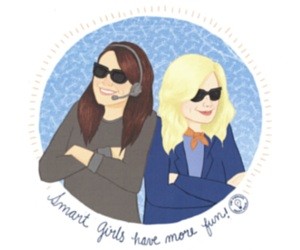 Amy Poehler’s Smart Girls is an organization, founded with Meredith Walker, to help “young people cultivate their authentic selves.” According to the website, Smart Girls aims to “emphasize intelligence and imagination over ‘fitting in’” and to “celebrate curiosity over gossip.” In her chat, Poehler simply described Smart Girls as a vehicle for producing the kind of content she would have liked to consume when she was a girl.
Amy Poehler’s Smart Girls is an organization, founded with Meredith Walker, to help “young people cultivate their authentic selves.” According to the website, Smart Girls aims to “emphasize intelligence and imagination over ‘fitting in’” and to “celebrate curiosity over gossip.” In her chat, Poehler simply described Smart Girls as a vehicle for producing the kind of content she would have liked to consume when she was a girl.
She also talked about how she became involved with WWO and how traveling to Haiti to engage with WWO’s work in the world was a transformative experience. WWO works with local individuals and organizations in several countries to identify the unique needs of orphans in each area served and to develop methods for addressing those needs through medical, developmental and educational programs that are culturally relevant and respectful.
In her discussion about much of her work, Poehler emphasized a few key points that remind me of why I remain involved in the work of Girls Leading Our World, Inc. (GLOW). When asked why she got involved with WWO, she pointed out that altruism is selfish. She said
when people ask us why we give of our time to help others, it’s okay for the answer to be: “because I want to feel good.”
And it’s true. Altruism can be kind of selfish because helping others, or at least trying, often makes us feel good. Except when it doesn’t. Because it doesn’t always. Sometimes it’s frustrating or even heartbreaking, and sometimes it leaves us a little drained and wondering whether what we’re doing is effecting any kind of social change. But Poehler’s point is a good one.
Many of us who get involved in social justice issues do so because we are passionate and compassionate and we think that changing the world for the better will make us feel good in the process.
So, what do we do when we go to battle social injustices and find it doesn’t always feel so good?
Poehler’s advice is: Do what makes you feel good! She says that’s what she does through Smart Girls. She enjoys performing and writing and dancing and comedy. So she’s created a way to connect with young people who very much need more positive media and now kids have a place online where they can find Smart Girls in STEM (that’s Science, Technology, Engineering, and Math), video book reviews by other smart girls, Experimenting with Megan Amram, who makes science super fun, and a dance move of the day that includes no twerking.
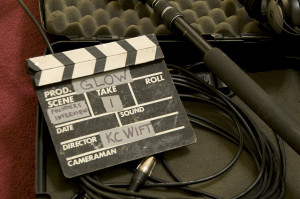 “Do what you love” may sound like an overly simplistic approach to tackling social justice issues, but it is such sage advice. For me, that was the beauty of the GLOW documentary, which I was honored to see screened at the Show Me Justice Festival in this spring. Thanks to a Missouri Arts Council grant secured by Kansas City Women in Film & Television,
“Do what you love” may sound like an overly simplistic approach to tackling social justice issues, but it is such sage advice. For me, that was the beauty of the GLOW documentary, which I was honored to see screened at the Show Me Justice Festival in this spring. Thanks to a Missouri Arts Council grant secured by Kansas City Women in Film & Television,
I was able to apply my love of filmmaking to a cause I truly believe in: empowering and mentoring women and girls to be agents of change within their communities and their own lives.
Each time I see the film, I feel good all over again—that’s where the “selfishness” of altruism comes in. I feel good in part because I have become more involved in the GLOW girls’ lives, but that good feeling isn’t so much about me. It’s about them.
It is a privilege to have had the opportunity to watch GLOW’s girls grow and mature over that past two years. It’s remarkable the change that can take place in 24 months.
Which is not to suggest that all of the GLOW girls’ lives have been miraculously transformed. Many still face some of the same challenges: violence and drug abuse in their neighborhoods and families, food scarcity, poverty, lack of access to accredited schools, sexual abuse, and a lack of positive adult role models. Yet, despite the challenges they face, GLOW’s girls persevere.
I have seen them grow more confident in themselves, more hopeful and intentional about their plans for the future, and more willing to speak in group settings.
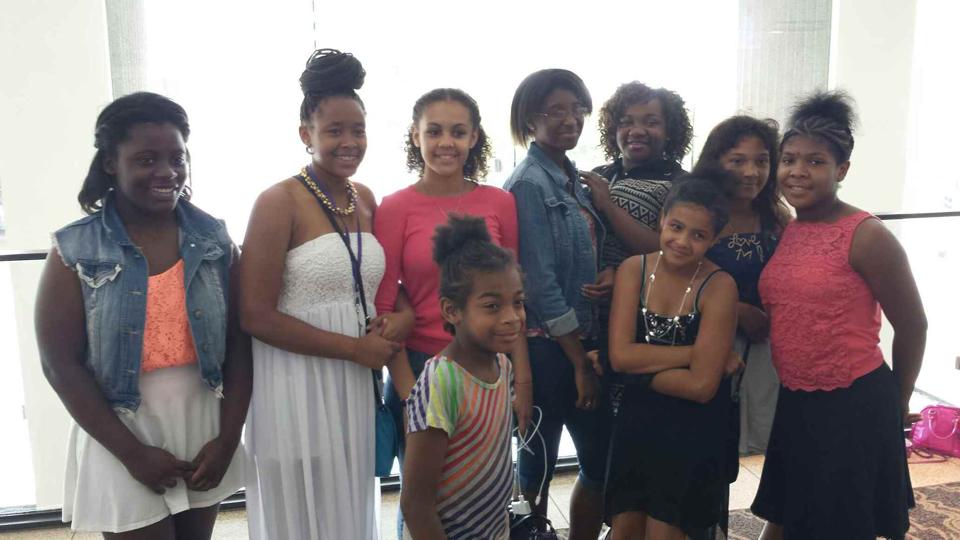 And I have seen one girl go from an alternative school, usually a “dumping ground” for kids who’ve been expelled from other schools for behavioral issues, to a respected charter school where she is now a successful student athlete with a high GPA that has put her on a college-bound path. This young lady used to regularly come to GLOW with stories about “why I got suspended this week.” Now I hear more about her track meets and her visits to college campuses.
And I have seen one girl go from an alternative school, usually a “dumping ground” for kids who’ve been expelled from other schools for behavioral issues, to a respected charter school where she is now a successful student athlete with a high GPA that has put her on a college-bound path. This young lady used to regularly come to GLOW with stories about “why I got suspended this week.” Now I hear more about her track meets and her visits to college campuses.
Unfortunately, I also hear a lot about the violence in her life and her friends’ lives. It’s not unusual to hear about a shooting in her neighborhood on at least a monthly basis.
This September, after a brief break in August, GLOW resumed its fall session and when I picked up this particular girl, one of a few I transport to GLOW meetings each week, she immediately began to tell me about how she’d had a rough day at school.
Her rough day at school didn’t sound anything like the rough days I’d had at school when I was her age. The rough day of this fourteen-year-old entailed comforting her friend who couldn’t stop crying because her cousin and the cousin’s baby were shot to death in their own home the night before. The next week when I picked her up, she commented on a convenience store we passed along the way to GLOW and said that’s where her own cousin had just been shot and killed. Later that same week, there was a story in the news about another gun-related death at a gas station blocks from her home.
This kind of violence should be shocking. But what was shocking was the way this teenager relayed news of the shootings as if they were business as usual. At the same time she talked about how “messed up” it is, she seemed resigned to the fact that this level of gun violence happens on a regular basis in her neighborhood.
These kinds of “big issues” feel completely overwhelming at times. Nationally we have been incapable of enacting common sense gun law reforms and the political climate feels as intractable as ever, even after the recent shootings in Oregon and Arizona. Being overwhelmed by social justice issues is something I wrote about in my first blog post for the Show Me Justice Festival this spring. I wrote about the paralysis that often comes with the desire to effect change.
In her chat Amy Poehler addressed this inertia as well. In fact, Gloria Rudd, who introduced Poehler, said the desire to move people beyond inertia was one of the motivating factors for establishing the Chat series. If you visit Amy Poehler’s Smart Girls, you’ll find various Ask Amy episodes where Amy answers letters from Smart Girls fans. So, what is Amy’s solution to social justice inertia?
Start small.
It’s so simple. No, I can’t personally solve the issue of gun violence or failing public schools or absentee parents or poverty in my community. But I can start small and give of my time to a local organization that is working to address these big issues, often in small and unseen ways. In my previous blog post, I also wrote about the importance of just showing up.
That’s often all we need to do to show we care. Just show up, be present for others.
Each week at GLOW I get a chance to do that. And because I keep showing up as much as I can, the girls have gotten to know me better and I them. They’ve allowed me into their world and I’ve allowed them into mine. And because of that, they feel safe enough to share things that are happening in their lives and talk with me about how it makes them feel or what they want for their future. 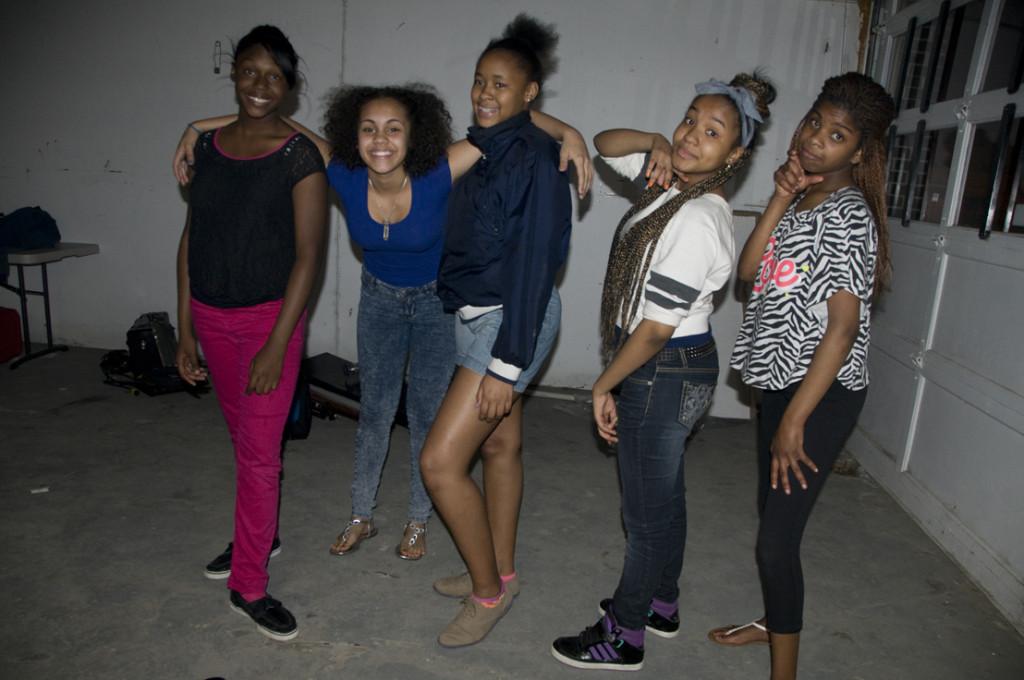
It is incredibly humbling when a kid talks with you about “big issues” in her life. It doesn’t always feel so good.
Often it feels like someone sucker-punched me. I feel at a loss to properly console or advise girls who’ve known challenges I’ve never had to face. And I know I can’t just “fix it” for them either.
But it does feel good that they trust me enough to talk with me about these things. And when we talk, I’m reminded that kids are kids. GLOW’s girls are so much like my niece and nephew, even though they have very different home lives, schools, and socio-economic factors at work in their lives. All kids seem to want 5 more minutes at the pool, more cookies/chips/soda (or whatever other junk food they feel they are being denied), and none of them want to put down their phones. And, if we can keep that in mind—that kids are kids no matter where you go, from Kansas City to Port-au-Prince—perhaps we will feel a little less overwhelmed by social injustices like gun violence and failing schools and child abuse. As Amy Poehler suggested in her Chat,
maybe that’s where change begins, with a simple chat.
Poehler reminded the Kauffman audience this week that kids tend to approach issues rather directly. How do we solve bullying? Everyone should just be nice. How do we solve homelessness? Everyone should just have a home. As adults, we know things are not all that simple. But talking with children can help us see the world in ways we haven’t in a while, and possibly in ways that we should. Since they are, indeed, our future—and will be responsible for taking care of us someday—it seems advisable to start having meaningful conversations with young people in our communities right now.
Those chats just might lead to the social change we seek.
